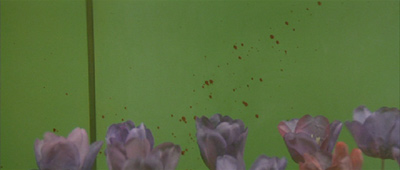Next week I'll devote this space to my Oscar picks, but this week I'd like to highlight some of the most overlooked work of the year. The films listed in the categories below have one thing in common: none were nominated in their respective categories, and they should have been.
Picture: A History of Violence Cronenberg's best film in almost twenty years is a massive achievement; its reputation will likely grow to classic status over time.
Director: David Cronenberg, A History of Violence I've never seen any sense in dividing the picture and director awards, and as I've said already, it's his best film since The Fly.
Actor: Cillian Murphy, Breakfast on Pluto Neil Jordan's film is good if uneven, but Murphy (also great in Batman Begins and Red Eye) gives a totally believable, heartfelt performance as Kitten, a lonely transvestite prone to daydreaming. The guys from Brokeback Mountain have been frequently hailed as "brave," but this is a truly daring role.
Actress: Q'Orianka Kilcher, The New World Terrence Malick's Pocohontas never betrays her newcomer status; Kilcher is endearing, then heartbreaking.
Supporting Actor: Mickey Rourke, Sin City My favorite perfomance of the year, hands down. Rourke takes a fearsome mug that Frank Miller once described as "Conan in a trenchcoat" and invests Marv with humanity and grace.
Supporting Actress: Catherine Keener, The 40-Year-Old Virgin Better here than in Capote, Keener helps steer a sex comedy into mature waters; the result could have been pretentious, but thanks to her performance and her genuine chemistry with Steve Carrell, the result is perceptive and sweet.
Original Screenplay: Broken Flowers Misunderstood as Jim Jamusch's stab at mainstream success, the story of Don Johnston is instead a subtle meditation on love, aging, and the unknown. It's his most emotional (and funniest) screenplay.
Adapted Screenplay: King Kong Remaining reverent to the 1933 film without veering into stale faithfulness, the same trio that wrote The Lord of the Rings tells a great ape story with even more interesting shades of meaning and wild ambition than the celebrated trilogy (and that's really saying something).
Also:
Cinematography: Jarhead
Art Direction: Batman Begins
Editing: The Squid and the Whale
Score: A History of Violence
Makeup: Land of the Dead
Visual Effects: Revenge of the Sith
Stay tuned for more Oscar fodder. P.S.: Don Knotts, you are missed.




